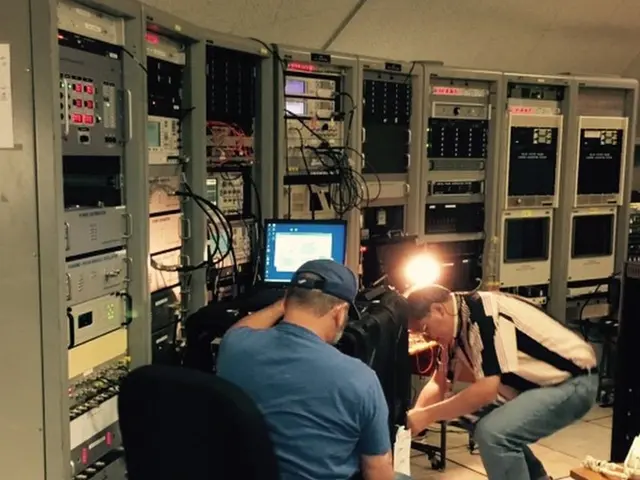Challenges Faced by African Traders in Embracing Digital Currencies
In recent years, there has been a growing interest in cryptocurrency across African markets. This interest is evident in the increasing number of educational initiatives aimed at merchants, such as the nearly 90 students who signed up for free crypto courses at Multimedia University in Nairobi.
One of the key challenges in promoting cryptocurrency adoption among African merchants is the limited knowledge and education about these digital assets. To address this, organisations like the Africa Blockchain Institute and Tether are collaborating to provide blockchain education to merchants in a practical and hands-on manner.
Another challenge is the evolving regulatory environment. Cryptocurrency adoption among merchants in African countries is heavily influenced by varying regulations. However, efforts are being made to provide clarity, such as the upcoming licensing of crypto platforms in Ghana and South Africa's oversight approach.
Poor technology infrastructure, particularly limited Internet access and smartphone availability, also poses a significant hurdle. Improvement in digital infrastructure, like increasing smartphone penetration and Internet reliability, is crucial for enabling broader access to crypto services.
Cost and technical barriers, including transaction fees and difficulties integrating crypto payment solutions into daily business operations, are also concerns. Crypto platforms offering low or zero transaction fees, like the AfriBit project in Kenya, are making crypto transactions economically attractive compared to traditional mobile money services.
Volatility risks and security concerns are other challenges. To address these, the promotion of stablecoins or hedging mechanisms is being proposed to reduce exposure to volatility for merchants and users. Creating secure, user-friendly crypto payment solutions is also essential to protect merchants from fraud and ease integration with their operations.
Partnerships between public and private sectors are essential for addressing regulatory uncertainties and infrastructure gaps. Collaborations between organisations like Binance Charity, Learn Crypto, Tether, and the Africa Blockchain Institute are providing educational resources to African merchants.
Traditional financial institutions are also playing a role in bridging the gap between conventional banking and cryptocurrency. Rob Downes, Head of Digital Assets at ABSA Bank, CIB, emphasised that traditional finance institutions are uniquely positioned to help usher in blockchain-based finance.
While cryptocurrency offers significant potential for enhancing financial inclusion and offering new economic opportunities to African merchants, overcoming education gaps, infrastructural deficits, regulatory uncertainty, and volatility risks are essential steps for wider adoption across the continent.
In South Africa, stablecoins have recently surpassed bitcoin as the most popular cryptocurrency, showcasing the potential for these digital assets in African markets. Stablecoins provide African merchants with a practical way to tackle some of the biggest hurdles in adopting cryptocurrencies, such as inconsistent exchange rates, high inflation, and expensive cross-border transactions.
The groundwork is in place for scaling educational initiatives to reach millions of African merchants and unlock the potential to transform not just businesses, but the broader economic landscape of the continent. The key lies in simplifying complex cryptocurrency concepts and connecting them to real-world business applications.
[1] Source: Africa Blockchain Institute FAQs [3] Source: Tether FAQs [5] Source: Binance FAQs
- To tackle the limitation in knowledge and education about cryptocurrencies among African merchants, organizations like the Africa Blockchain Institute and Tether are collaborating to provide blockchain education in a practical and hands-on manner.
- Financial institutions, such as traditional banks, are playing a significant role in bridging the gap between conventional banking and cryptocurrency, as they are uniquely positioned to help usher in blockchain-based finance.
- Stablecoins, which have recently become the most popular cryptocurrency in South Africa, provide African merchants with a practical way to deal with inconsistent exchange rates, high inflation, and expensive cross-border transactions.
- To achieve wider cryptocurrency adoption across the African continent, it's essential to address education gaps, infrastructure deficits, regulatory uncertainties, and volatility risks, and to simplify complex cryptocurrency concepts and connect them to real-world business applications.




